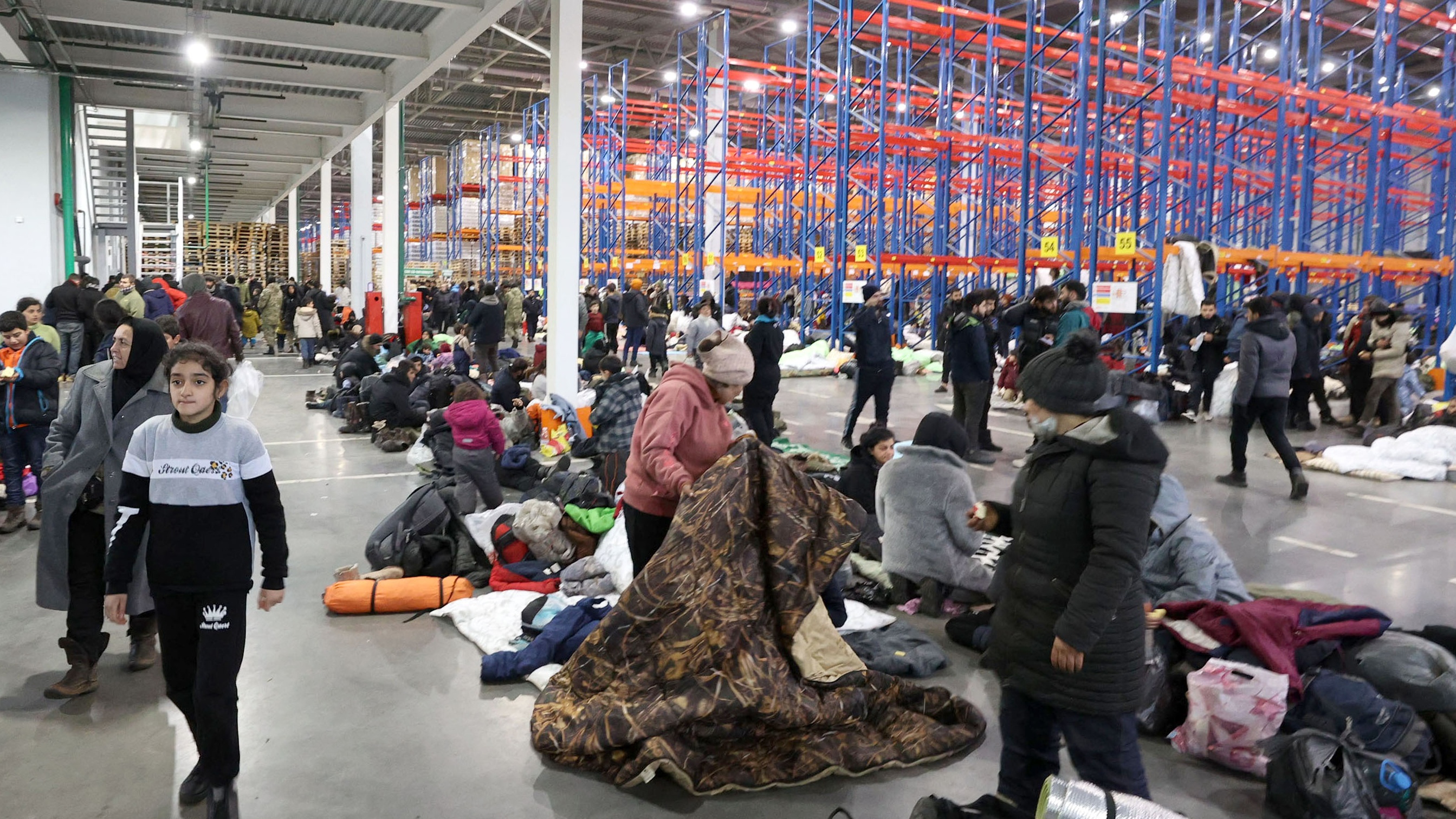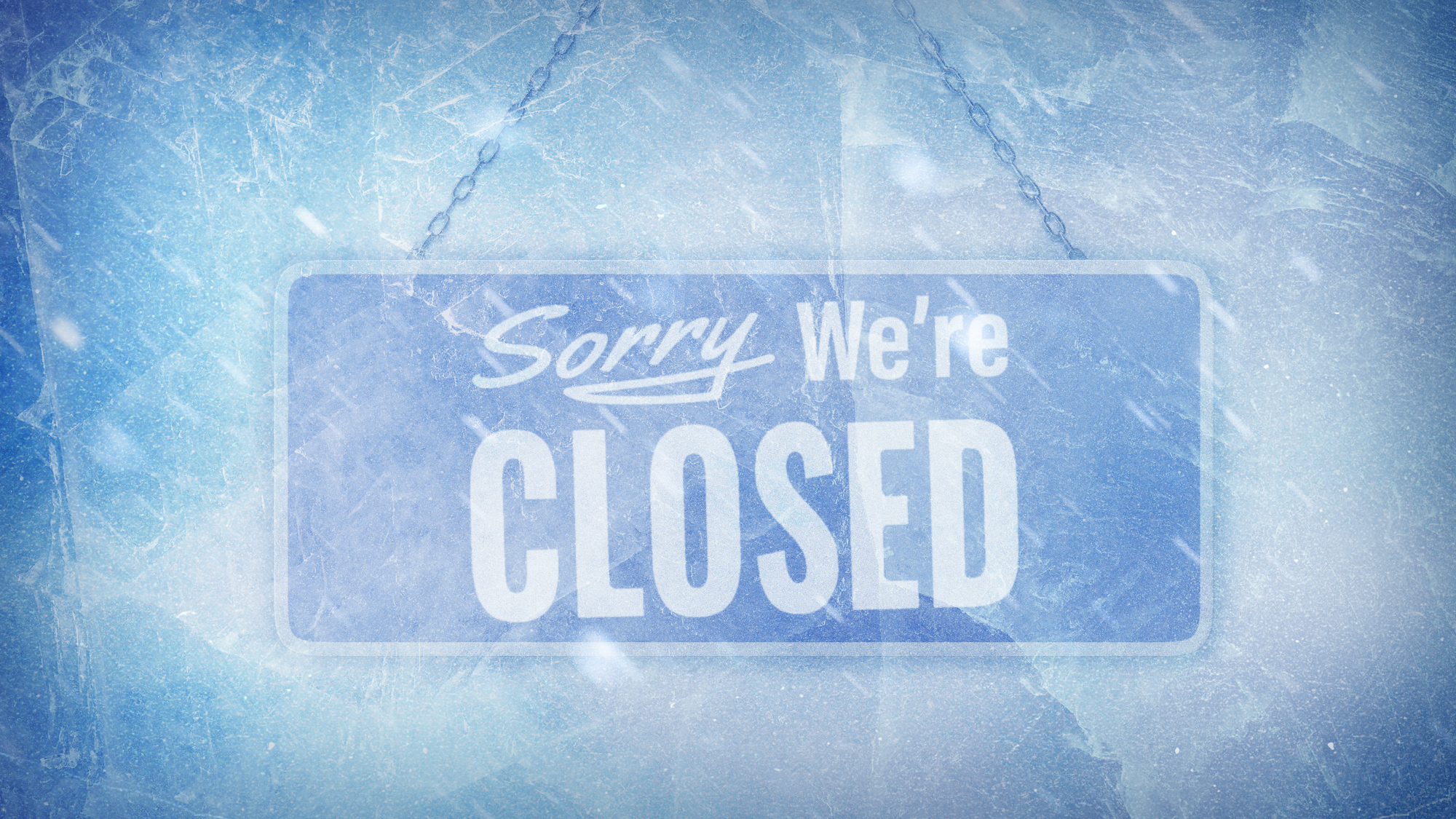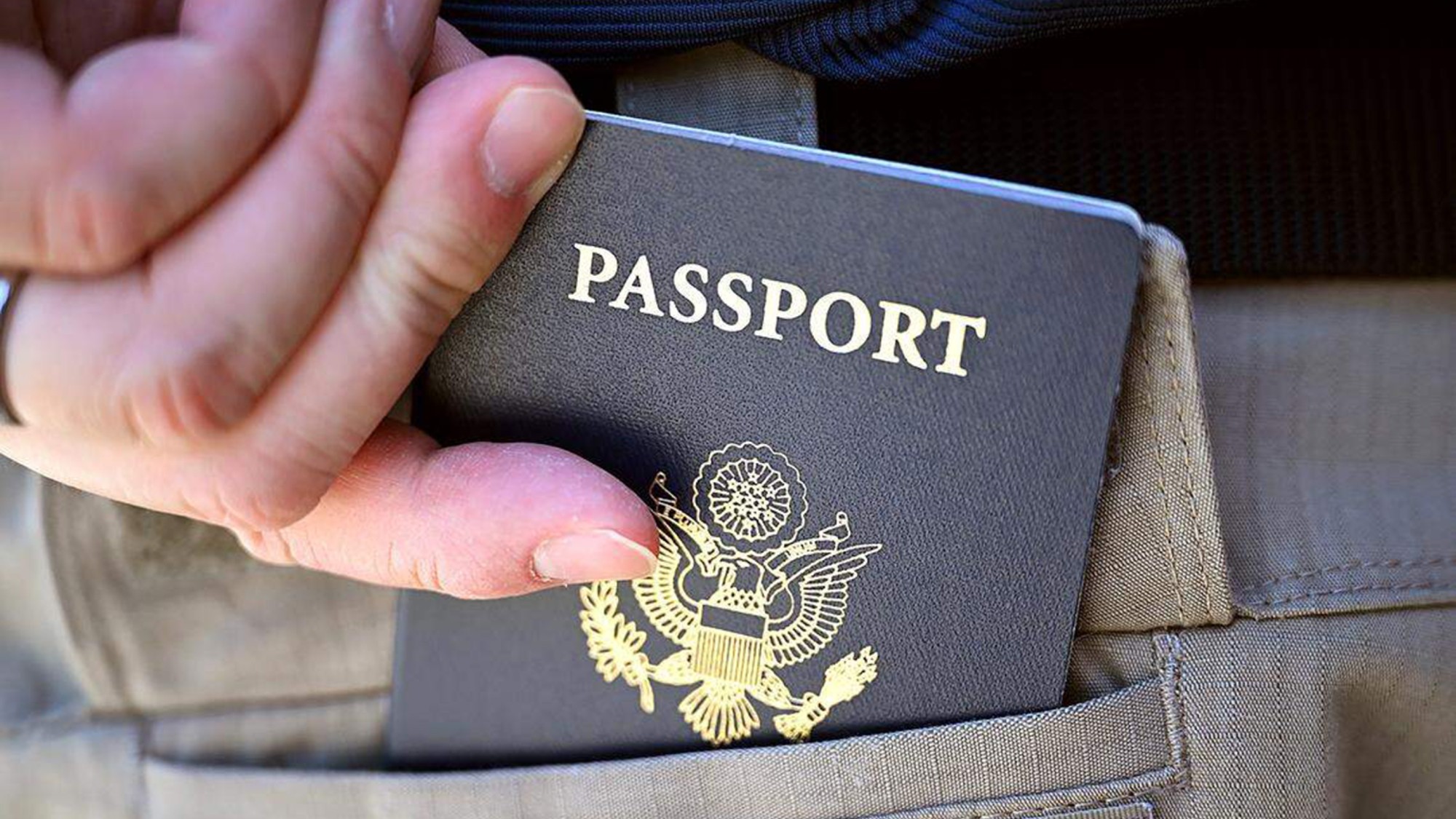Migrant row defeat triggers ‘crisis’ of ‘own making’ for Alexander Lukashenko
Belarusian dictator forced to find shelter for tens of thousands of stranded asylum seekers as Russian support wanes

A free daily email with the biggest news stories of the day – and the best features from TheWeek.com
You are now subscribed
Your newsletter sign-up was successful
Belarus has begun moving some of the 20,000 migrants stranded in the country into makeshift warehouse shelters, in a move heralded as a declaration of defeat in Alexander Lukashenko’s stand-off with Poland.
The Belarusian dictator has “lost the border battle”, a deputy interior minister in Warsaw told The Telegraph. The climb-down offers “respite to migrants that had been camped out in freezing conditions” in the hope of breaking through border defences to enter the EU, the paper said.
But amid reports of vulnerable people being bussed away from the area surrounding Belarus’ border with Poland, Lukashenko is now “in the difficult spot of dealing with a problem of his own making”, The Washington Post said.
The Week
Escape your echo chamber. Get the facts behind the news, plus analysis from multiple perspectives.

Sign up for The Week's Free Newsletters
From our morning news briefing to a weekly Good News Newsletter, get the best of The Week delivered directly to your inbox.
From our morning news briefing to a weekly Good News Newsletter, get the best of The Week delivered directly to your inbox.
Namely, what to do with the thousands of migrants “left within his borders” by the culmination of his ploy to force the EU’s hand over sanctions.
Migrant climbdown
According to The Telegraph, Lukashenko backed down over the border standoff following “a rare phone call with a Western leader”.
Angela Merkel, the departing German chancellor, is said to have “urged” the Belarusian president to “get a grip of the ‘humanitarian crisis’ developing in his country”.
A free daily email with the biggest news stories of the day – and the best features from TheWeek.com
The “20,000 migrants stranded” in Belarus now face “an uncertain future”, the paper added, despite escaping the border that has “escalated into a conflict zone” in recent days as migrants were “pushed towards the frontier by Belarusian security forces”.
More than 400 Iraqi migrants “boarded deportation flights to Iraq”, Sky News reported. The group, which mainly consisted of Iraqi Kurds, left from Minsk airport yesterday and will fly to Erbil in Iraq’s autonomous northern Kurdistan region, and then on to Baghdad.
Iraqis “make up a significant number of the estimated 4,000 migrants trapped at the Belarus border” trying to cross into the EU, the broadcaster added.
Belarus said that 1,000 migrants who had been “living in camps in freezing conditions and with little food or water” have been transferred to “a temporary shelter for them in a transport and logistics centre near the Kuznica checkpoint”, the BBC reported.
Images circulated on state media showed “pictures of migrants lying on the floor of the facility with mattresses, blankets and food packages”. Despite the organisation of repatriation flights by the Iraqi Foreign Ministry, “many in the group are Iraqi citizens”, the broadcaster added.
The beginning of Lukashenko’s about-turn came as “a stretch of Russia’s major oil pipeline to Europe in Belarus was shut down for maintenance”, The Telegraph said, “reinforcing allegations that Minsk is waging a ‘hybrid war’ against the EU”.
But at home, the dictator must figure out “what to do with thousands of stranded people he lured from the Middle East and beyond”, while maintaining his “self-crafted image as the country’s only guarantor of stability and safety”, The Washington Post said.
Lukashenko is doing his best to claim that he has “resolved” the issue, the paper added. In reality, “the gambit has come full circle”.
‘We will not return’
Many of the migrants massing in the temporary shelters inside Belarus have made clear that they “still intended to enter the EU”, the BBC reported. One woman told the broadcaster: “We will not return to Iraq. It’s very bad there. For the sake of the future of our children, we want to go to Germany.”
This is the issue facing Lukashenko, how to manage the migrants trapped in Belarus while also avoiding the wrath of the EU and “saving face after trying to punish his neighbors over sanctions”, The Washington Post said.
A route out of his predicament would be “repatriating the migrants”. However, that “would be a climb-down after months of carefully building the crisis, the paper added.
The crisis has also served to complicate the “carefully balanced and contradictory relationship” between Lukashenko and his sponsors in Russia, a key ally of his undemocratic administration, The Moscow Times said.
Suggestions have been made that Vladimir Putin encouraged Lukashenko’s decision to lure migrants to the EU’s border. But Artyom Shraibman, a Belarusian political analyst based in Ukraine, told the paper that he doubted Lukashenko “needed any push from Russia to act in this way”.
Continuing that the dictator “has been threatening to unleash the flow of migrants for many years before 2021”, he added: “But then, if Moscow had wanted to stop Lukashenko, it could have done so.”
Putin confirmed on Saturday that Lukashenko “did not consult him before his threat last week to cut off Russian gas supplies to Europe”, The Washington Post said, adding that “Lukashenko has not mentioned the threat since”.
All of this suggests that Putin still holds “considerable sway over Lukashenko and has so far allowed the crisis to play out”.
Defusing the situation without upsetting his allies in Moscow will be vital over the coming weeks, with “Russia’s contradictory moves throughout the crisis” further complicating Lukashenko’s hand, The Moscow Times said.
Russia has signalled its “support for Lukashenko with military drills in Belarus while also coordinating with European leaders to defuse the crisis”, the paper added.
And these mixed signals have resulted in Lukashenko wanting to “put some distance between Minsk and Moscow and to increase his freedom for maneuver independent of Russia”, according to Andrei Kortunov, head of the Kremlin-aligned Russian International Affairs Council.
Given Belarus’ status as a pariah state beyond its friends in Moscow, “it would be strange if Putin supported him in that”, he added.
-
 What are the best investments for beginners?
What are the best investments for beginners?The Explainer Stocks and ETFs and bonds, oh my
-
 What to know before filing your own taxes for the first time
What to know before filing your own taxes for the first timethe explainer Tackle this financial milestone with confidence
-
 The biggest box office flops of the 21st century
The biggest box office flops of the 21st centuryin depth Unnecessary remakes and turgid, expensive CGI-fests highlight this list of these most notorious box-office losers
-
 How corrupt is the UK?
How corrupt is the UK?The Explainer Decline in standards ‘risks becoming a defining feature of our political culture’ as Britain falls to lowest ever score on global index
-
 Businesses are caught in the middle of ICE activities
Businesses are caught in the middle of ICE activitiesIn the Spotlight Many companies are being forced to choose a side in the ICE debate
-
 Trump’s ‘Board of Peace’ comes into confounding focus
Trump’s ‘Board of Peace’ comes into confounding focusIn the Spotlight What began as a plan to redevelop the Gaza Strip is quickly emerging as a new lever of global power for a president intent on upending the standing world order
-
 The high street: Britain’s next political battleground?
The high street: Britain’s next political battleground?In the Spotlight Mass closure of shops and influx of organised crime are fuelling voter anger, and offer an opening for Reform UK
-
 EU-Mercosur mega trade deal: 25 years in the making
EU-Mercosur mega trade deal: 25 years in the makingThe Explainer Despite opposition from France and Ireland among others, the ‘significant’ agreement with the South American bloc is set to finally go ahead
-
 Trump considers giving Ukraine a security guarantee
Trump considers giving Ukraine a security guaranteeTalking Points Zelenskyy says it is a requirement for peace. Will Putin go along?
-
 What have Trump’s Mar-a-Lago summits achieved?
What have Trump’s Mar-a-Lago summits achieved?Today’s big question Zelenskyy and Netanyahu meet the president in his Palm Beach ‘Winter White House’
-
 US citizens are carrying passports amid ICE fears
US citizens are carrying passports amid ICE fearsThe Explainer ‘You do what you have to do to avoid problems,’ one person told The Guardian